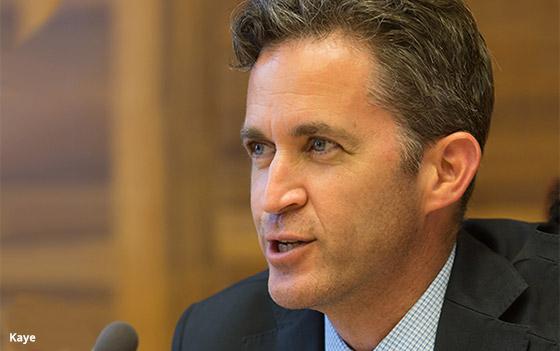
The United Nations' free speech expert is
weighing in against the Federal Communications Commission's proposal to gut the net neutrality rules.
"We express serious concern with the proposed rule changes, which may significantly roll
back protections for net neutrality and unduly interfere with freedom of expression online in the United States," David Kaye, U.N. special rapporteur on freedom of opinion and expression, writes in comments filed with the FCC. Edison Lanza, a free speech expert for the
Inter-American Commission on Human Rights, joined in the comments.
The FCC's net neutrality rules, passed 3-2 in 2015, classified broadband as a utility service and imposed some common carrier
rules on Internet service providers. The regulations include three "bright-line" prohibitions -- a ban on throttling or blocking content and on charging companies higher fees for prioritized delivery.
The rules also include a "general conduct" standard that broadly prohibits Internet service providers from unreasonably impeding the ability of consumers and content providers to reach each other.
advertisement
advertisement
Earlier this year, FCC Chairman Ajit Pai proposed that the agency reverse the decision to classify Internet access as a utility service -- a move that observers say may deprive the agency of the
authority to stop broadband providers from throttling or blocking material, or from engaging in paid prioritization. Pai also proposed abolishing the "general conduct" standard.
The FCC is
currently seeking comment on Pai's proposed changes, as well as on the three bright-line rules.
Kaye and Lanza urge the agency not to water down the three bright-line net neutrality rules. "We
are concerned that the repeal or weakening of these rules will permit broadband providers to block or throttle Internet traffic associated with competing services, or charge more for access to certain
types of Internet data at regular speeds, such as video streams," they write. "Particularly concerning is the prospect of paid-prioritization schemes, where broadband providers speed up prioritized
content and force all other non-prioritized content into slow lanes."
They also say the general "conduct standard" enables the FCC to police questionable practices by providers. "We are
concerned that the elimination of such discretion will remove regulatory oversight in a rapidly changing digital environment where broadband and edge providers continue to experiment with and roll out
new methods of managing and pricing access to Internet traffic and content," they write.